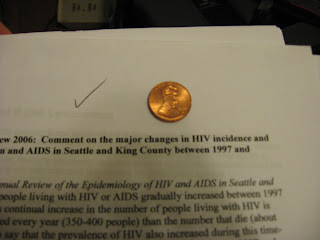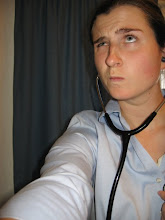 (Picture of Rex downloaded from a Google image search to jog your memory about the famous line).
(Picture of Rex downloaded from a Google image search to jog your memory about the famous line).During fall quarter I went home quite a bit to help mom out after her hip replacement surgery. However, towards the end of the quarter I saw the impact it was having on my studies and decided to stay in Seattle and just focus on class for the rest of the term. Unfortunately, this meant that I could not come home for Monica's birthday at the beginning of December (right before finals week). Monica was very upset by this and tried diligently to convince me over the phone to come home for her 5th birthday party. I examined my schedule and determined it was completely impossible to come home for her birthday and had to give her a firm, "No" over the phone. She too hard but at the end of the conversation she said in her little cute voice, ""Its ok that you can't come. Christy, I love you and I miss you and I love you. OK?" I hung up the phone and felt absolutely terrible. Was this to be the first of many situations through out my life where medicine would prevent me from being with friends and family when they wanted me? I bought Monica a birthday present (a little pan flute from Peru) which I gave to her after finals were over. I felt really guilty when I gave it to her. It was almost as if I was trying to buy her off or something - as if the present was saying, "I am sorry I couldn't be here when it was important to you. Here, have something that costs money instead." Is that what busy physicians and medical students do? Hmmmmm. I just hope I don't have to proclaim my guilt about this too much in the future.













































